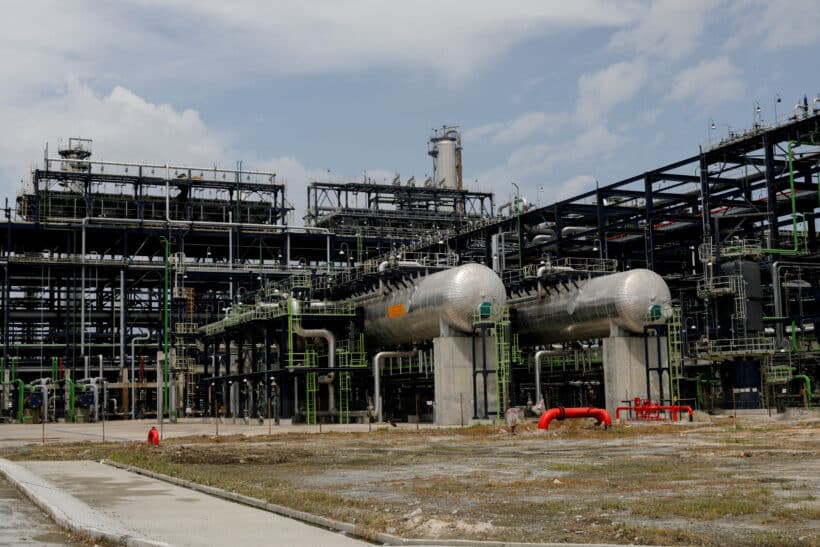
ABUJA, July 29 (Reuters) – Nigeria’s government gave approval on Monday for state oil company NNPC Ltd to sell crude in the naira currency to the mega Dangote refinery effective immediately to help ease foreign exchange pressure.
The $20 billion Dangote refinery, Nigeria’s main oil refinery and billed to be the largest in Africa at full throttle, started production in January but has struggled to secure enough crude to meet its 650,000-barrel-per-day capacity.
Dangote previously had to buy oil on the international market, but it filed a complaint saying oil majors were blocking its access to locally produced crude by selling it above market price or claiming it was unavailable, forcing the refinery to rely on expensive imports.
The cabinet gave the nod for NNPC Ltd to start selling crude to Dangote and other local refineries immediately in naira to ease pressure on foreign exchange, Zacch Adedeji, a cabinet member who is chairman of Nigeria’s Federal Inland Revenue Service (FIRS), told reporters.
The refineries will also be able to sell refined fuels to local marketers in naira, he said.
“By this decision, the pressure on foreign exchange rates today will be reduced,” Adedeji said.
He explained that the previous scenario exerted a burden of $660 million in demand on foreign exchange per month, amounting to $7.92 billion annually. The new arrangement is projected to reduce this amount to around $50 million per month, or $600 million annually, leading to annual savings of $7.32 billion, Adedeji said.
Africa’s most populous country has suffered chronic dollar shortages that have forced authorities to devalue the naira twice within the past year.
Analysts say the decision to approve the crude sales in naira could reduce the need for the refineries to seek new loans from foreign lenders and help lower transportation costs.
“It is essentially a policy choice between substantial naira transactions versus Nigeria’s need for foreign currency,” said Ayodele Oni, energy lawyer and partner at Bloomfield, a Lagos-based law firm.
Local fuel marketers had been worried they would be unable to pay for supplies from the Dangote refinery when it starts pumping gasoline next month if priced in dollars.
Earlier this month, Nigeria’s oil regulator struck a deal with producers to allow sales of crude oil to domestic refiners at market prices as it sought to end a supply dispute that had strained relations with the oil majors.
(Additional reporting by Isaac Anyaogu; Writing by Elisha Bala-Gbogbo; Editing by Mark Potter, Susan Fenton and Paul Simao)

